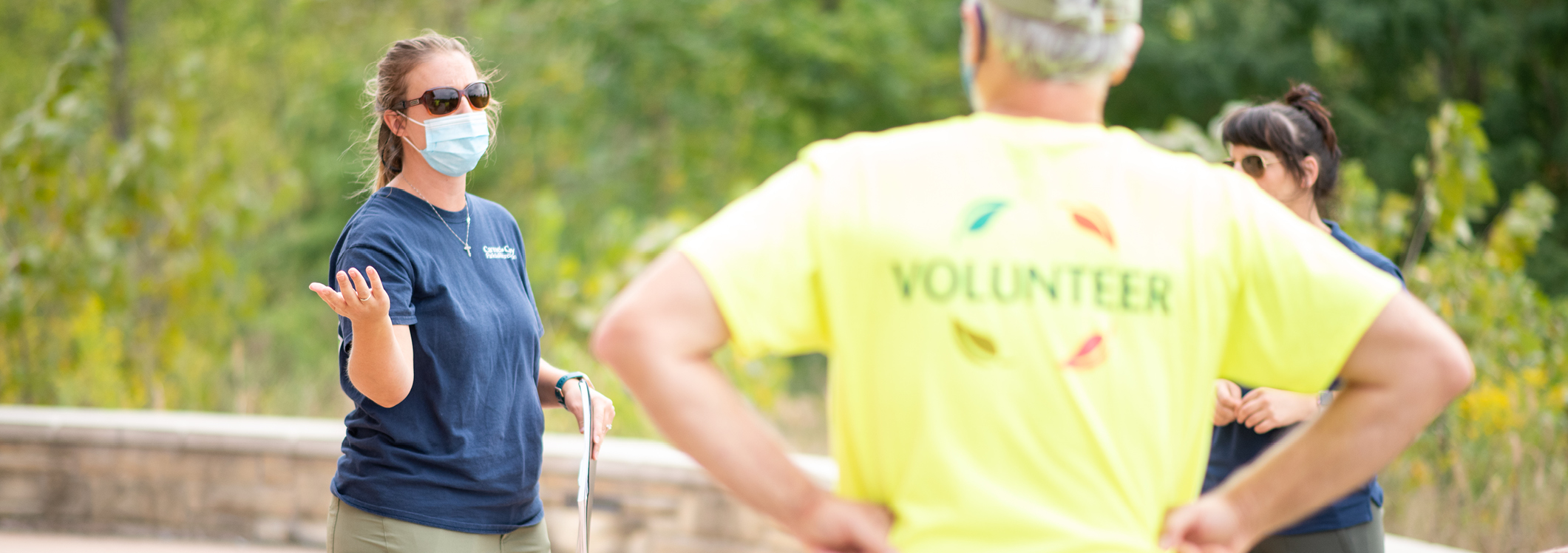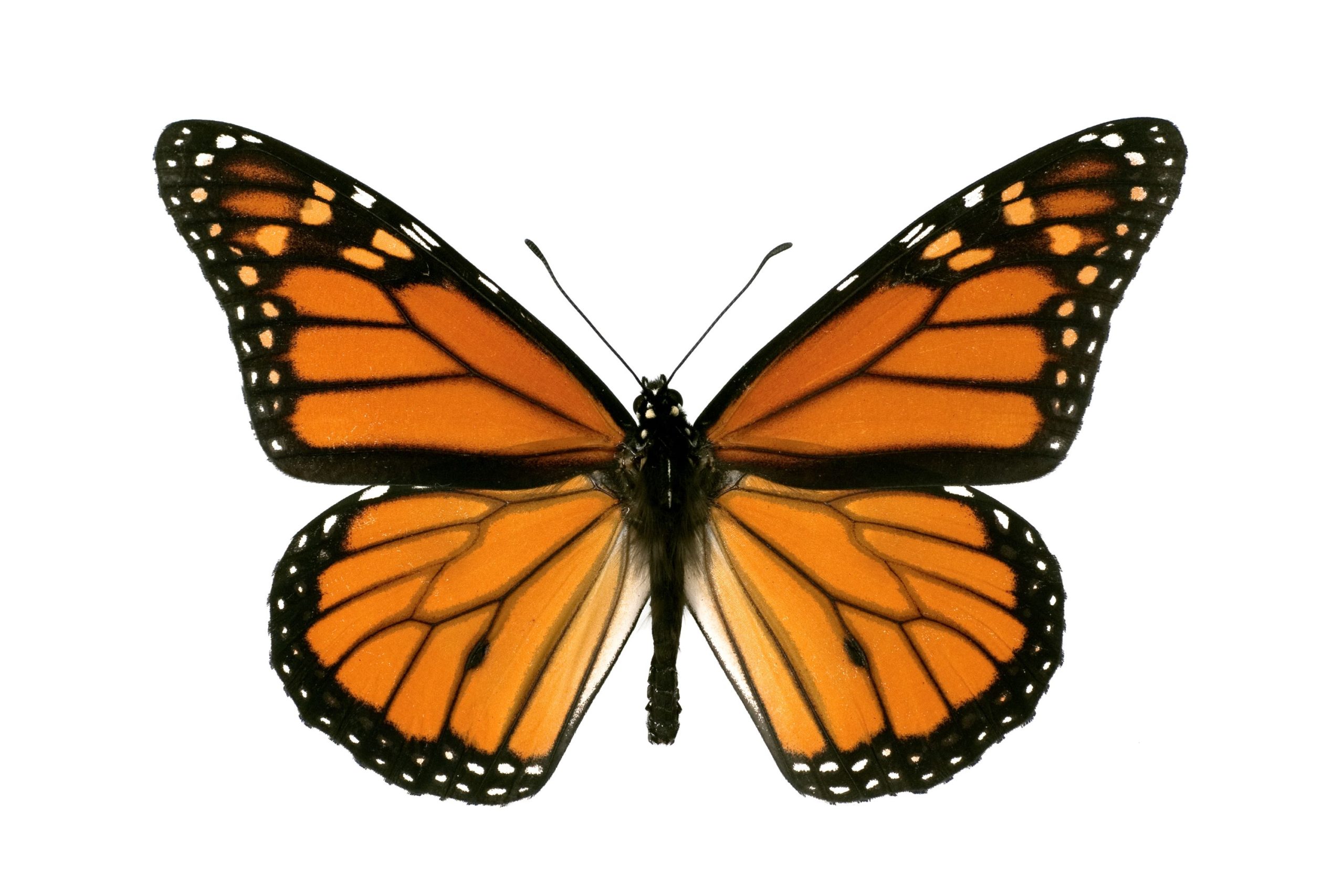Protecting Imperiled Pollinators
Project Wingspan targets native habitats
As an avid birder and certified Indiana Master Naturalist, Patty Steffen spends a lot of time outdoors. Her favorite spot is Central Park. Usually, she keeps her eyes turned toward the sky as she scours the tree line for feathered friends. But on a warm October day last fall, she found herself in Central Park with a new mission much closer to the ground — collecting native seeds.
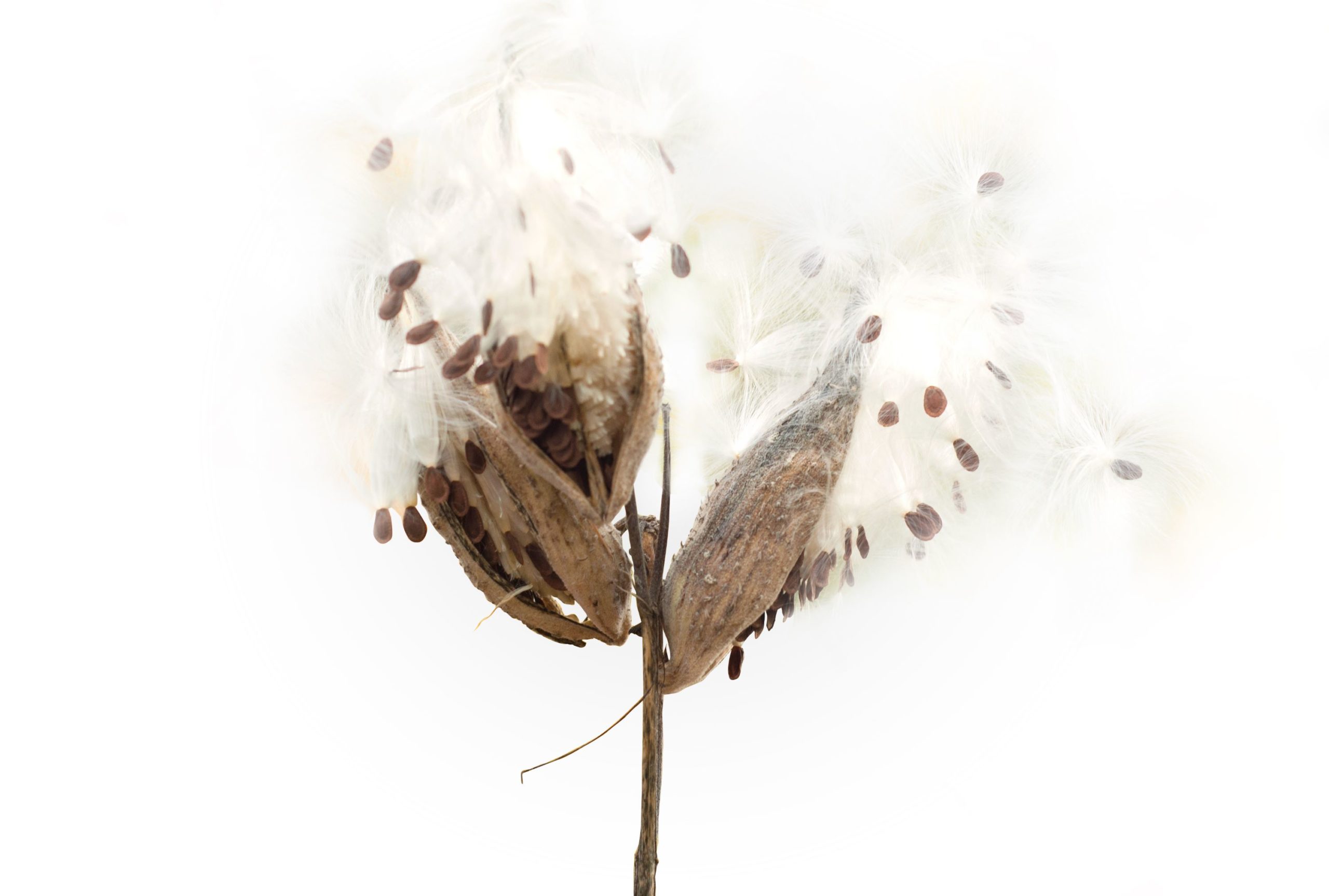
Steffen and a handful of eager volunteers ventured into Central Park prairies to find and collect milkweed seed during one of Carmel Clay Parks & Recreation’s native seed collection events. Milkweed is an important native plant because monarch butterflies exclusively feed on milkweed leaves and use the plant as its host.
In the fall, milkweed’s summer blooms are replaced by seed pods that resemble large, spiky cocoons. If left to their natural devices, the pods break open and their small, feathery seeds are carried away by the wind to start the whole process over again.
Carmel Clay Parks & Recreation volunteers were on a mission to locate the pods and collect their fluffy seeds in white letter envelopes.
“What I love about our park system is that I’m always learning something new,” says Steffen. “I’ve volunteered with Carmel Clay Parks for years, but I didn’t know anything about native seeds, what seed collection was or why it’s important. After just one day out at the park with the Parks & Natural Resources team, I not only learned about the importance of native seed collection but was able to be a part, which was an awesome experience.”
Collecting native seeds is one way to help protect our pollinators. CCPR has always placed an emphasis on growing and managing native plant species in its parks. With its own thriving native habitats, CCPR can both sustain existing populations as well as collect and share native seeds with areas in need of restoration — which is what they began to do in fall 2019 as part of the Pollinator Partnership’s Project Wingspan.
What is Project Wingspan?
Over the last few decades, several pollinator species have experienced rapid decline. This can be attributed to a variety of factors including habitat destruction, invasive species and pesticides.
This is a devastating problem. Pollinators are responsible for about one in every three bites of food we eat and $20 billion worth of food products every year.
One way to ensure a future for pollinators and our food supply is planting native, pollinator friendly plants like milkweed and native wildflowers. While we can all make a difference by planting pollinator friendly specimens in our backyards, a larger concerted effort is necessary. Project Wingspan was launched to: “Increase the quality, quantity and connectivity of pollinator habitat across the Midwest and Great Lakes Region to support imperiled native pollinators and the vital habitat they depend on.”
Project Wingspan dedicates its resources to increasing habitat of two imperiled pollinators, the monarch butterfly and rusty patch bumblebee. The monarch butterfly is one of the most recognizable species to be impacted. The rusty patch bumblebee is the first North American bee to be listed as an endangered species.
Project Wingspan is supported by grants from the National Fish and Wildlife Foundation and is completely reliant on volunteers and partner organizations. Carmel Clay Parks & Recreation has committed to supporting Project Wingspan for its three–year duration from 2019-2021 by hosting native seed collection events each fall.
With over 500 acres of parkland home to hundreds of native plant species, CCPR is uniquely qualified to participate in Project Wingspan. In 2019, CCPR volunteers collected eight different types of seeds and sent thousands to be cleaned and redistributed. Joanna Woodruff, CCPR Natural Resources Coordinator, enjoys leading the native seed collection events. 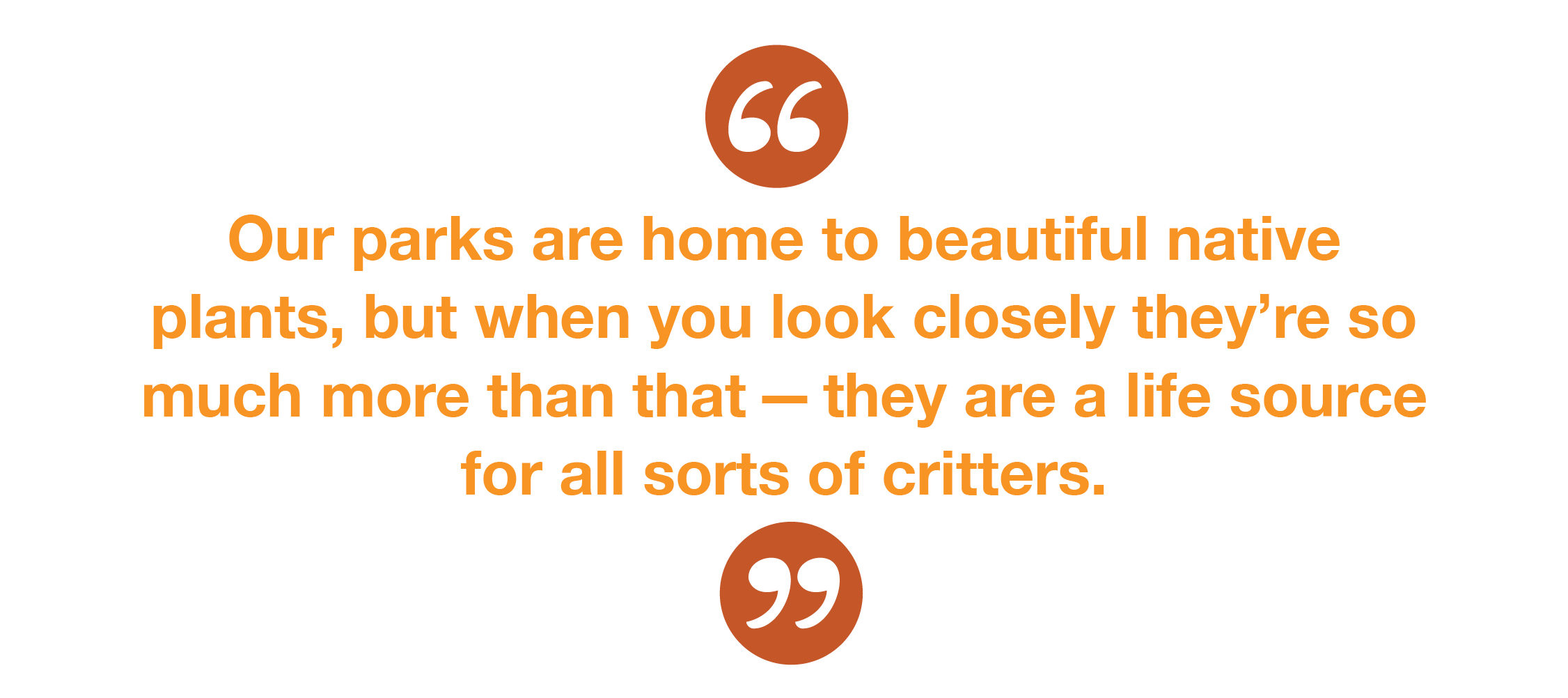 “Through Project Wingspan and our native seed collection events, we are able to make a broader impact by helping restore the native habitats we enjoy right here in Carmel and across the Midwest.”
“Through Project Wingspan and our native seed collection events, we are able to make a broader impact by helping restore the native habitats we enjoy right here in Carmel and across the Midwest.”
An Impact Beyond Carmel
Patty Steffen says she so enjoyed collecting native seeds that she’ll volunteer whenever CCPR offers the event.
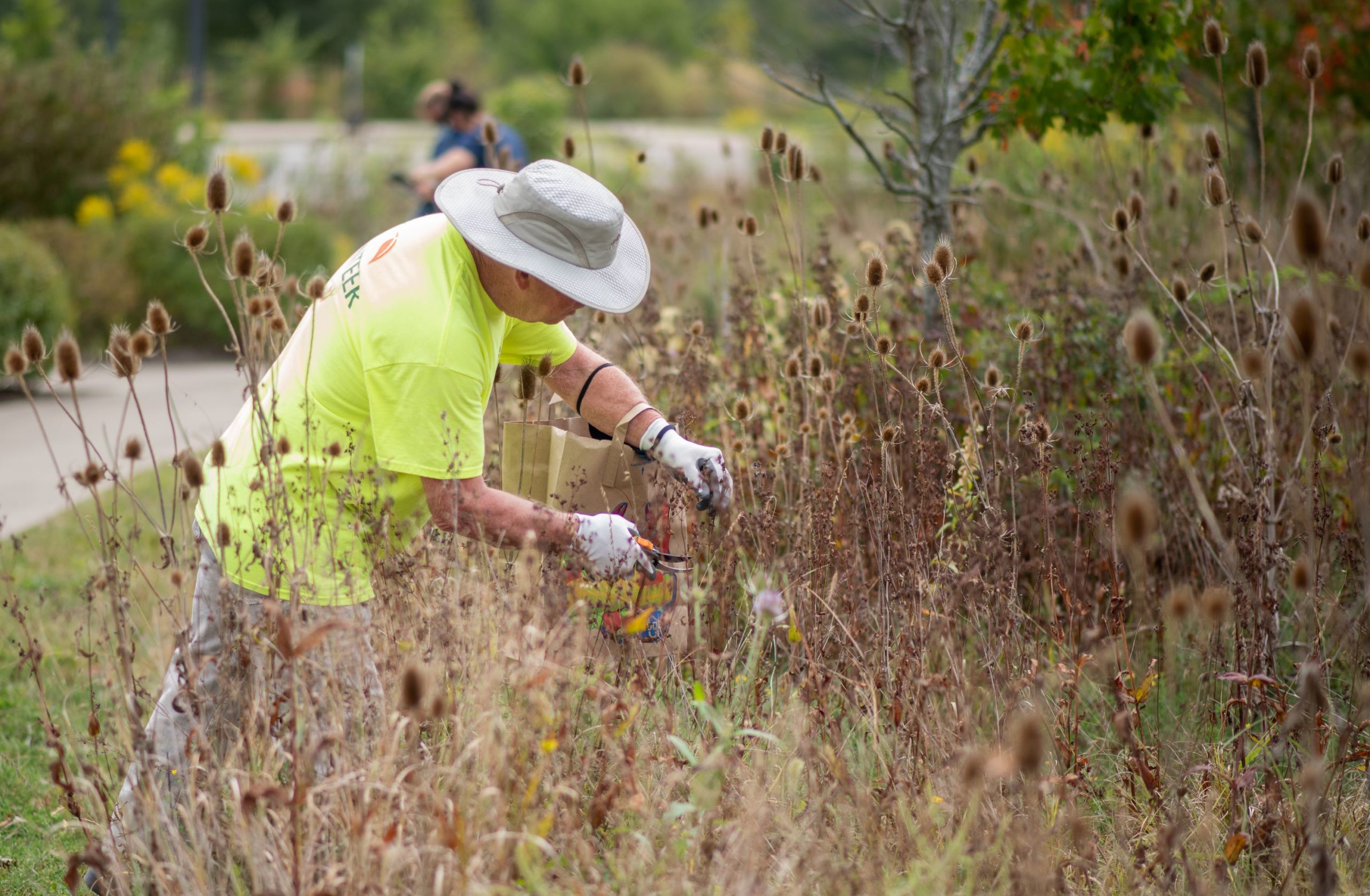 “What I enjoy most is the work we’re doing is making an impact beyond Carmel,” says Steffen. “We’ve established this amazing native habitat here in our parks, and now not only do we get to enjoy its beauty and reap its benefits, but we get to share that with others. I’m grateful to be part of projects like this and encourage others to come out, too.”
“What I enjoy most is the work we’re doing is making an impact beyond Carmel,” says Steffen. “We’ve established this amazing native habitat here in our parks, and now not only do we get to enjoy its beauty and reap its benefits, but we get to share that with others. I’m grateful to be part of projects like this and encourage others to come out, too.”
If you share Steffen’s interest in the outdoors and protecting our pollinators, consider volunteering for a native seed collection event. In the meantime, make a difference in your own backyard by planting native plants to support pollinators in your corner of the world.
Native seed collection events are accessible and no prior experience is required. Find all upcoming park stewardship volunteer opportunities on the Carmel Clay Parks & Recreation website.

